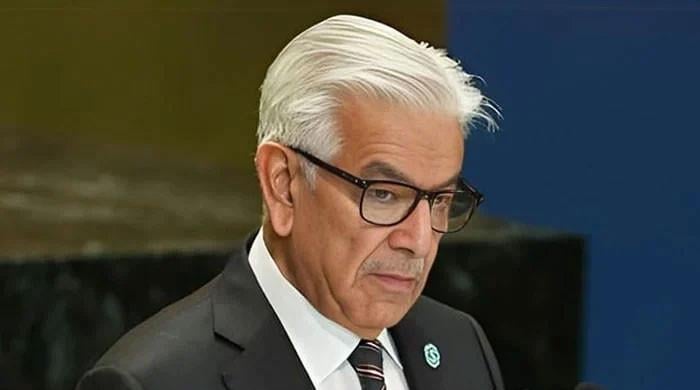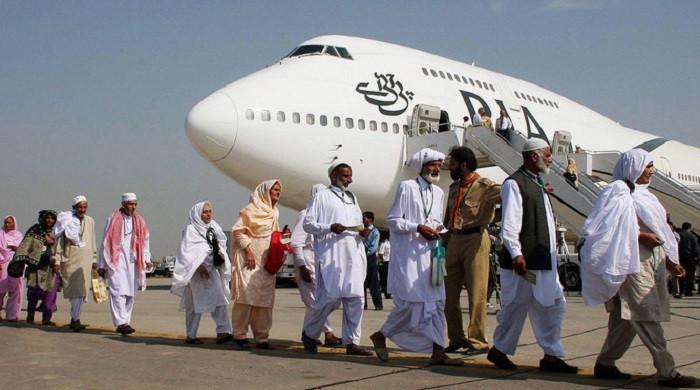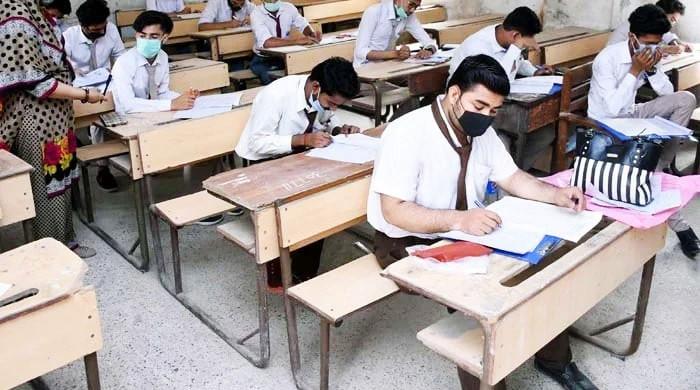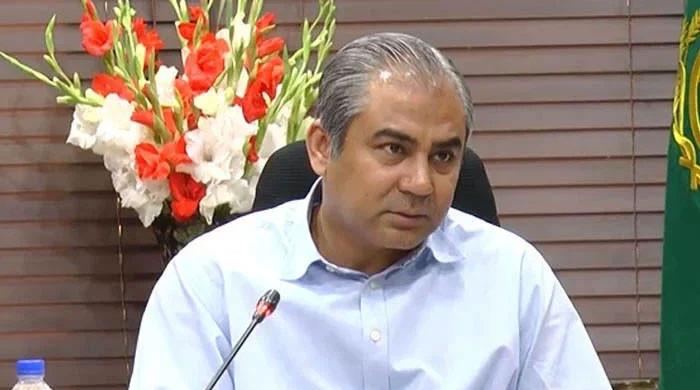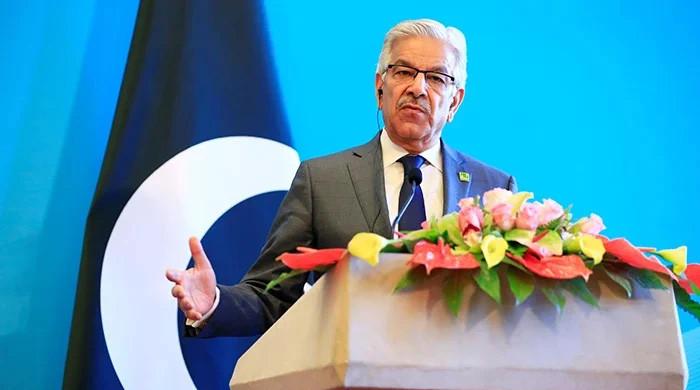Afghan refugees' repatriation begins, UN expresses deep concern
Govt says total number of Afghan refugees in Pakistan 3mn, all of whom are set to be repatriated this year
April 03, 2025
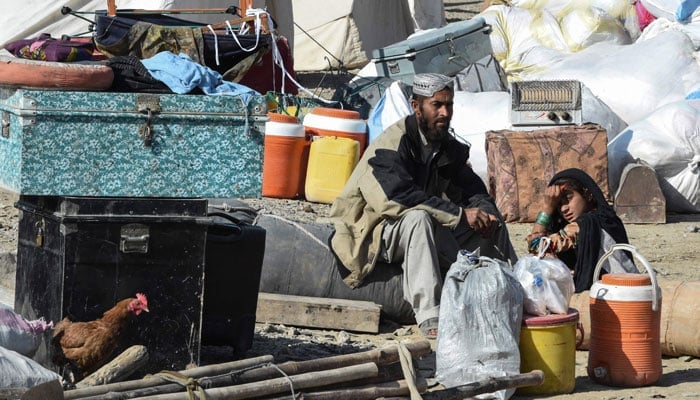
- Govt has established 54 refugee camps across Pakistan.
- These camps provide food, shelter, primary education.
- Forced repatriation to be violation of human rights, says AI.
The deadline for the repatriation of undocumented Afghan refugees in Pakistan ended on March 31, 2025, and the government has now commenced their return.
According to sources in the Ministry of Interior, the process was delayed due to Eid ul Fitr holidays, therefore, it could not begin on April 1, but authorities have now launched operations against undocumented Afghan nationals across the country.
How many Afghan refugees are in Pakistan?
According to data obtained by Geo News, there are currently 2.1 million registered and unregistered Afghan refugees in Pakistan. Sources in the Ministry of States and Frontier Regions (Safron) state that 1.4 million Afghan refugees are legally registered, while 800,000 Afghan nationals hold an 'Afghan Citizen Card' (ACC), but their stay is now considered illegal. However, the government claims that the total number of Afghan refugees in Pakistan is three million, all of whom are set to be repatriated this year under the illegal foreign nationals' deportation plan.
How are Afghan residents in Pakistan categorised?
Afghan nationals residing in Pakistan for decades fall into four categories.
The first category consists of Afghan citizens who fled to Pakistan due to instability in Afghanistan and were granted official refugee status. In 2007, Pakistan issued Proof of Registration (PoR) Cards to these refugees, who now number around 1.3 million. The government issued these cards only once, renewing them periodically, with the current validity expiring on June 30, 2025.
The second category includes Afghan nationals who were issued Afghan Citizen Cards (ACC). Approximately 800,000 individuals received these cards in 2016, and they are now being repatriated as part of government deportation efforts.
The third category comprises Afghan nationals who fled to Pakistan after the Taliban takeover in 2021. These individuals were granted asylum under international protocols. While the Pakistani government initially claimed that 600,000 Afghans arrived after the US withdrawal, the United Nations High Commissioner for Refugees (UNHCR) states that only 200,000 were officially registered.
The fourth category includes undocumented Afghan nationals who lack both PoR and ACC status and are not registered as asylum seekers from the 2021 influx. This category also includes those who have married in Pakistan and obtained fake national identity cards. Over the past two years, the National Database and Registration Authority (Nadra) has been cancelling such fraudulent IDs through its National Verification and Renewal Drive, now classifying these individuals as illegal residents.
Has govt made alternative arrangements for Afghan refugees?
The government has relocated Afghan refugees in already established 54 refugee camps across Pakistan to temporarily house documented as well as undocumented Afghan refugees. These include 43 camps in various districts of Khyber Pakhtunkhwa, 10 camps in Punjab and one camp in Balochistan. These camps were already constituted with the help of UNICEF.
These camps provide food, shelter, primary education, and healthcare, but human rights organisations have raised concerns about their condition.
Dignified, voluntary repatriation crucial: UN
The government's actions have caused widespread anxiety among Afghan refugees, many of whom have lived in Pakistan for decades and now fear sudden deportation. The United Nations and human rights organisations have expressed concern over forced repatriations, urging Pakistan to respect international laws.
According to Amnesty International: "Many Afghan refugees in Pakistan face severe threats if returned to Afghanistan. Forced repatriation would be a violation of human rights." Similarly, the UNHCR emphasises that Afghan refugees should be repatriated in a dignified and voluntary manner to ensure long-term stability.
Speaking to Geo News, UNHCR spokesperson Qaiser Khan Afridi warned that Afghanistan's deteriorating human rights situation puts returnees at serious risk. "Many Afghan Citizen Card holders are running businesses in Pakistan, and their children are enrolled in local schools. The Afghan government's restrictions on girls' education and women's employment must be considered before repatriating these refugees," he stated. He also noted that some deported Afghans may be eligible for international protection.
Is Afghan govt prepared to receive refugees?
The Taliban administration has welcomed the repatriation of Afghan refugees. However, experts warn that Afghanistan’s economic crisis and security concerns pose major challenges to their reintegration.
According to data from the International Organisation for Migration (IOM) and the UN, 850,000 Afghan nationals have been repatriated from Pakistan since September 13, 2023. Of these, 90% were undocumented migrants, while 10% returned voluntarily.
Is this Pakistan's first major repatriation drive?
Pakistan has previously launched multiple repatriation campaigns for Afghan refugees.
1979: After the Soviet invasion of Afghanistan, millions of Afghan refugees fled to Pakistan.
1990s: During the first Taliban regime, some refugees voluntarily returned, but the majority remained in Pakistan.
2002-2005: Following the fall of the Taliban in 2001, the UNHCR launched a voluntary repatriation programme, facilitating the return of nearly three million Afghan refugees from Pakistan, amid claims that Afghanistan was becoming stable.
2016: Under Pakistan’s National Action Plan, the government announced a large-scale repatriation programme, resulting in 370,000 Afghan refugees returning to Afghanistan, while 800,000 were issued Afghan Citizen Cards (ACC).
Unlike previous efforts, the 2023-2025 repatriation drive is being described as the largest and most stringent campaign in Pakistan’s history.




